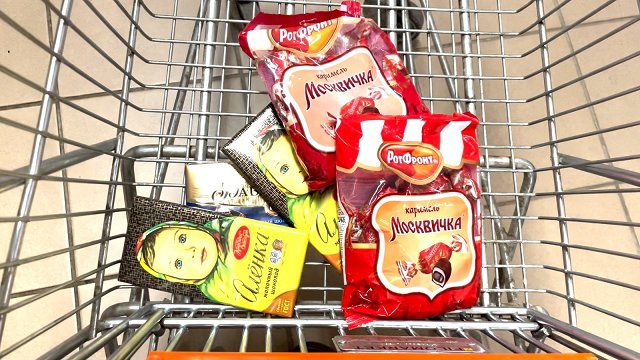Gifts, toothpaste, drawing supplies - Aldis Dzirkalis shows what's in the boxes he's not allowed to give to families now, though they have been waiting since Christmas. The reason is one box containing cat food.
Aldis has his own business. He drives a van to England. On the way back, the van was empty, and he volunteered to take charity gifts from the UK Latvians to Latvia's low-income families. But since Brexit the importation of animal feed has been regulated by particularly strict rules.
Feed must be presented for veterinary border control. “And that's where the whole problem starts because it hasn't occurred to the person when they were packing such a shipment that the part that concerns the origin of the animal food will have very strict requirements,” said Iveta Zemniece, deputy director of the Food and Veterinary Service (PVD) Border Control Department.
Aldis was tasked by the PVD inspectors to dispose of those four boxes in a certified place, but since the declaration shows a charity organization as the recipient, so a legal person, it must first register with the PVD.
“If I could just take it to the landfill, if they allowed, I would just take it. I could film the whole process and order a brass band to play at the disposal,” says Aldis.
The PVD now concedes that these few packets could indeed be taken and destroyed by Aldis himself.
Until the cat food has been destroyed, the consignment cannot be cleared.
“There is no issue with clearance on our part as long as the PVD requirements are met,” noted Sandra Kārkliņa-Ādmine, deputy director of the Customs Administration of the State Revenue Service.
The issues with the shipment will not be over because oatmeal, tea and coffee are also included in the presents. These goods may be imported, but once again the consignee, if he is a legal person, must register with the PVD in order for the products of plant origin to be traceable.
Meanwhile, with the cold weather, the shampoo bottles in the boxes have cracked and leaked, possibly damaging other parcels.



























